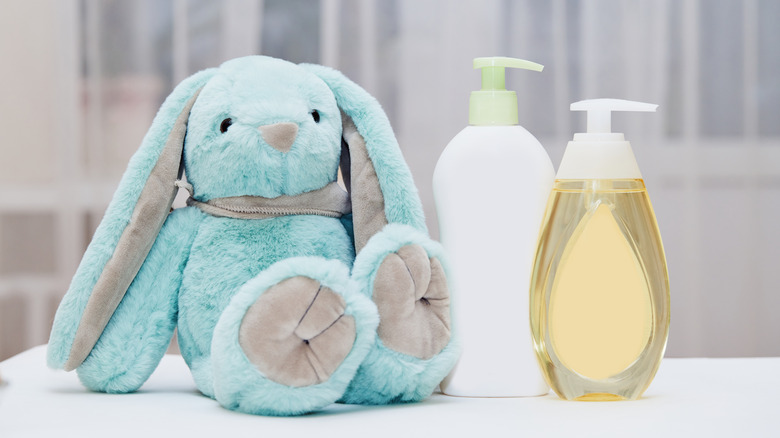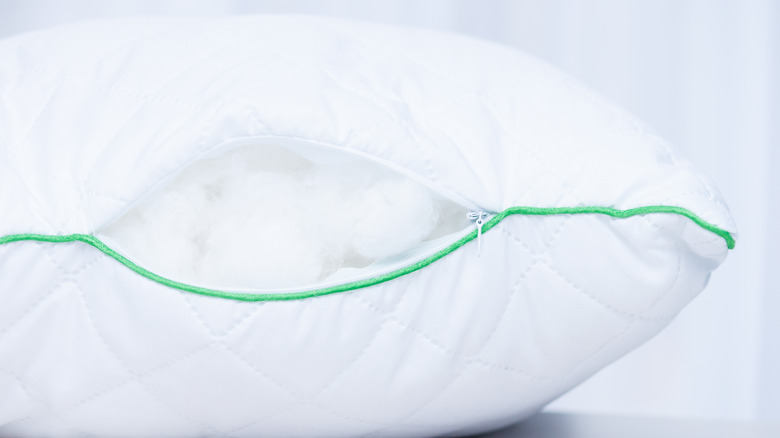What Does It Mean When Something Is Hypoallergenic?
Allergies can be extremely irritating, but they're also some of the most common health conditions on the planet. People can be allergic to many things resulting in many symptoms, from a simple runny nose or itchy eyes all the way up to face or throat swelling, depending on the allergy, explains Mayo Clinic.
No matter the type of allergy, all allergic reactions can be explained by your immune system. The allergens themselves — pollen, food, pet dander, etc. — don't actually cause the symptoms. Rather, it's your body's immune system reacting to the substance that causes allergic reactions, according to Cleveland Clinic. The immune system produces an antibody called immunoglobulin E (IgE) that reacts against a specific allergen, but may not be released for another type of the same substance, explains Johns Hopkins Medicine. This is why a person can be allergic to one type of pollen, but be fine around other types.
People can also be allergic to ingredients in common household products. Those with allergies can use products labeled as hypoallergenic to potentially mitigate their symptoms. But what does it mean if something is labeled as hypoallergenic?
Hypoallergenic products contain few or no allergens
Many people who have allergies might look for products with the label "hypoallergenic." This means that the product contains few or no allergens, according to The Healthy. However, it's important to know there are no government standards regarding hypoallergenic labels. Any product — whether it's clothing, cosmetics, or other products — can label themselves as hypoallergenic without meeting a standard set by the federal government, explains Healthline.
In fact, the U.S. Food and Drug Administration warns that because there are no federal standards for hypoallergenic claims, "the term means whatever a particular company wants it to mean." Does this mean that all products labeled as hypoallergenic are bogus? No, of course not. It simply means that people with allergens need to be aware of the particular allergens that affect them and be a little more cautious when seeing the hypoallergenic label. Healthline says it's best to check ingredient lists to make sure there aren't any potential allergens lurking in a product you want to use. In addition, talk to your doctor about getting a referral for an allergist who can test you and provide treatment options.


